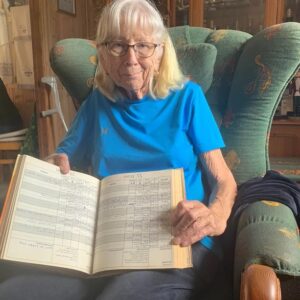Last month, my son Michael turned 22, and I thought we had passed the difficult teenage years. I had no idea a storm was coming.
Michael interrupted me while I was making lunch, his face twisted with frustration.
“Mom, we need to talk,” he said, unusually serious.
The tension in his voice made me turn to him. Yes, honey, what’s on your mind?
Leaning against the counter, he folded his arms. “I need a car.”
Shocked, I paused. “A car? What became of your part-time job? You were saving for one.”
Michael sighed in frustration. “I know, but it’s taking forever to save, and I need it now.”
I wiped my hands on a kitchen towel and frowned. Cars cost a lot, Michael. You know. You work, so you can save more and—”
“No, Mom, I can’t wait anymore,” he interrupted. I’m tired of taking the bus or riding with you because all my friends have cars. Need my freedom.”
I felt frustrated, “Michael, I understand, but we can’t just buy you a car randomly. It’s not easy.”
He clenched his jaw, eyes narrowing. “Maybe I’ll move in with Dad. He’ll buy my car.”
His words slammed me.
David, my ex-husband, always tried to buy Michael’s love instead of parenting. I couldn’t believe Michael would suggest it.
“Michael, you can’t just threaten to leave because you’re not getting what you want,” I said, trying to stay calm.
“Why not? Dad would welcome me. He defiantly replied, “He always spoils me.”
I breathed deeply, trying to think, “This isn’t about your dad. Responsibility matters. As an adult, you must make responsible decisions.
His eyes rolled, “Yeah, responsible decisions like being the only one without a car among my friends.”
Though our conversation ended, tension lingered. I couldn’t shake disappointment and worry.
Michael and I had silent treatments and tension the following days. I always got into arguments when I brought up the topic.
When we had dinner, I tried again.
“Michael, can we discuss the car again?” I asked cautiously.
He sighed, poking his food, “What’s to talk about, Mom? You won’t buy me one.”
“It’s more than buying you a car, Michael. How you handle this situation matters, I said, trying to stay calm.
He looked up, defensive, “What do you mean?”
“Adults don’t threaten to leave if they don’t get what they want. It’s unfair to manipulate me,” I said, frustrated and sad.
He shrugged, “Just tired of waiting. Dad would know.”
“Dad is absent, Michael. You can’t fix everything with a car. But what about the costs? Maintenance, insurance…” I paused, hoping he understood.
He paused before pushing his plate away, “Forget it, Mom. You’ll never comprehend.”
After he left the table, I felt guilty about being too harsh or failing as a parent.
Days turned into weeks, and house tension increased. Michael became more isolated, spending most of his time with friends or in his room.
On Saturday morning, I found a note on the kitchen counter:
I’m staying with Dad, Mom. I hate being here. He may grasp me better.”
Reading the words broke my heart. I expected this day, but not this way.
I immediately called Michael but got voicemail. I panicked thinking about David’s current location. We didn’t talk for years after the divorce.
After some desperate searching, I found David’s number and called, hoping he would answer.
“Hello?” David sounded surprised across the line.
I’m Sarah, David. I… I need to know if Michael is with you,” I shouted, trying to stay calm.
He paused before responding.
Sarah, what’s up? Michael is absent.”
My heart sank further. “He left a note saying he’ll stay with you. He’s upset I won’t buy him a car.”
David sighed in frustration, “I had a feeling something like this might happen. I’ll talk to him if he comes, but he can’t avoid his problems.”
I hung up after thanking him. Michael didn’t reply for days. I called and texted him but got no response. Worrying about him kept me from focusing.
An evening knock on the door followed. As I rushed to respond, my heart raced. Michael looked exhausted and defeated with a duffle bag over his shoulder.
Mom, can we talk? He asked softly.
I embraced him in relief, “Of course, come in.”
Michael shakily said, “I’m sorry, Mom,” as we sat in the living room. I was stupid.” I gently squeezed his hand, “It’s okay, Michael. I appreciate your return.”
He looked down, avoiding my gaze, “I realize now that running away wasn’t the solution. Dad had no idea what I was talking about when I arrived.” I nodded, sad and relieved, “I’m glad you’re safe. But we must discuss what happened.”
So we talked. We discussed responsibility, communication, and adulthood challenges. It was a difficult but necessary conversation. Michael realized that owning a car came with responsibilities, not just freedom. I learned that communication was crucial, even in difficult times.
From that day on, we rebuilt our relationship stronger, knowing we would face challenges together.
Click below to read more…





